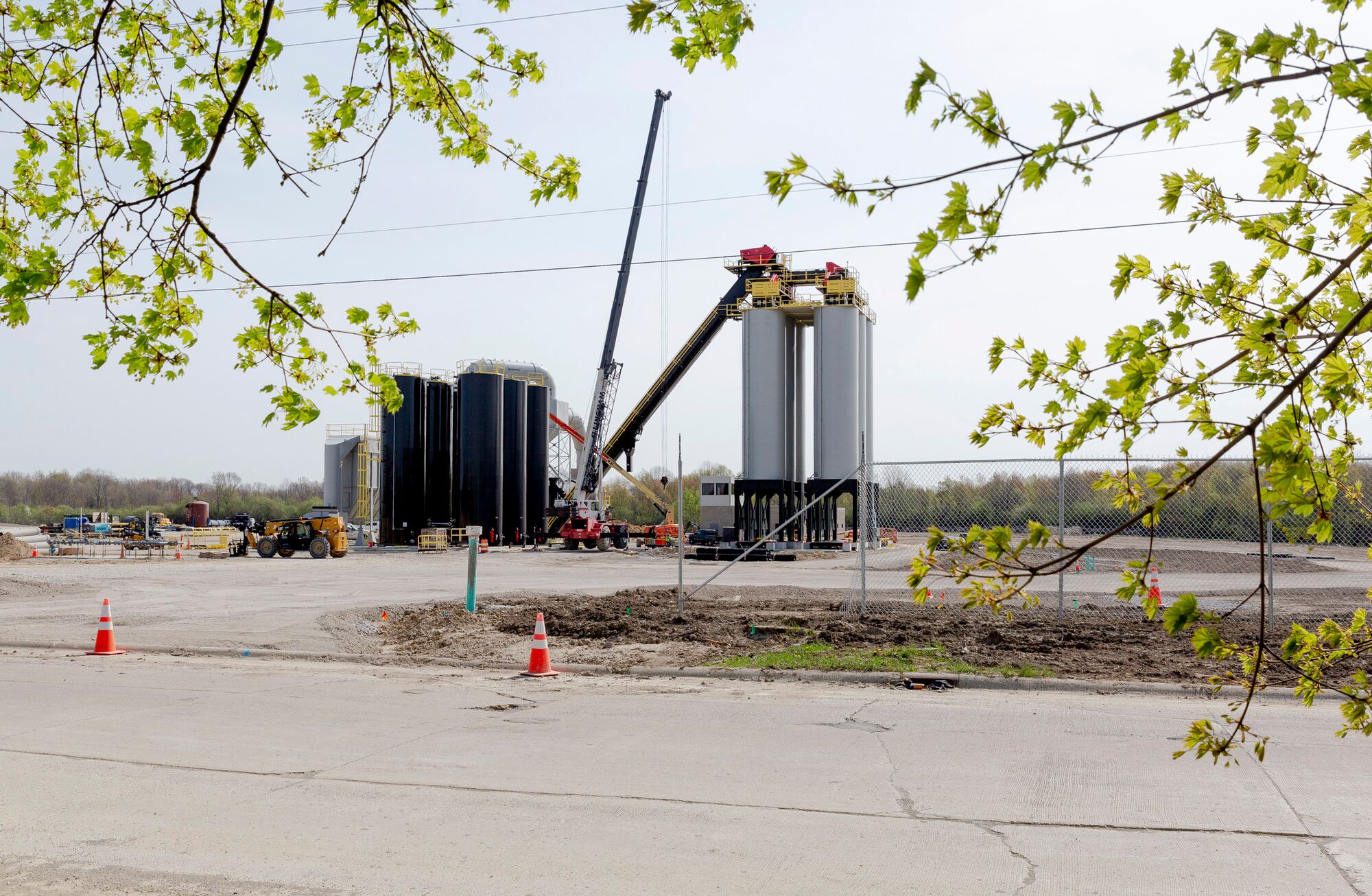Flint Groups React to Opening of Toxic Ajax Asphalt Plant
Despite two federal civil rights investigations and a lawsuit, Michigan allowed operations to start
Contact
A toxic asphalt plant near Flint began operating and emitting harmful chemicals last week, after Michigan regulators gave a final permit to Ajax despite allegations of environmental racism and multiple legal challenges brought by residents, environmental groups, and the City of Flint. The plant sits in the township’s only majority Black census tract, across the street from two public housing developments that are home to around 400 families. Many residents already suffer chronic health problems due to the area’s concentration of industrial polluters and stemming from the 2014 Flint water crisis that led to mass lead poisonings. In fact, the same agency that ignored dangerous levels of lead in Flint’s water supply nine years ago — today called the Michigan Department of Environment, Great Lakes, and Energy (EGLE) — also approved the toxic Ajax plant.
Last week, Earthjustice and Great Lakes Environmental Law Center attorneys representing five community groups asked a circuit court judge to make EGLE redo the Ajax permit. They argued that the agency violated the Clean Air Act and the state’s air quality rules by failing to account for the plant’s full potential emissions, and by relying on data from air monitors located 50 and 100 miles away from the asphalt plant. Emails uncovered during trial show that EGLE staff have prioritized “customer service” for polluting companies above public health or air quality. EGLE itself reported that in 2021 it approved 97% of the 25,039 permit applications it received, denying only .4%, while the remainder of applications were withdrawn.
In late 2021, community groups filed a Title VI civil rights complaint with the Environmental Protection Agency (EPA) to hold EGLE accountable for its failures to consider the cumulative impacts of pollution in this case and across the state. They also worked with the National Housing Law Project to file a Title VI civil rights complaint with Housing and Urban Development (HUD) to combat Genesee Township’s pattern and practice of racial discrimination. Both complaints are under review.
Community groups issued the following statements in response to the plant’s opening:
Rev. Monica M. Villarreal of Michigan United: “Once again, EGLE shows complete disregard for the people of Flint. It is astounding that Ajax is testing its operational capacity the very same week that the plant’s permits are being challenged in court. It’s clear that Ajax and the government agency tasked with regulating them do not care about the people that will be hurt by the pollution from this plant, or all the ways the environment will be impacted.”
Nayyirah Shariff, director of Flint Rising: “This is exactly what community members fought tooth and nail to prevent. Since this facility was proposed, we have knocked on doors, collected thousands of signatures, marched in the streets, held public education sessions, led agency staff on toxic tours, testified before regulators, and rung alarms before the EPA and HUD. Our health and the future of our kids hang in the balance, and we do not intend to quit now.”
Ted Zahrfeld, board chair of the St. Francis Prayer Center: “The last time we fought an air permit that was so blatantly discriminatory, it took 24 years for the EPA to take action. By then, the damage was already done. The opening of the Ajax plant shows how little has changed — regulators still want this place to be a sacrifice zone, and those of us who live here still refuse to be sacrificed.”
Mona Munroe-Younis, executive director of the Environmental Transformation Movement of Flint: “The price of Michigan’s asphalt should not be more cancer, asthma, and respiratory illnesses in a community that can least afford to deal with it. EGLE ought to be ashamed for prioritizing industry profits over our right to breathe clean air.”
Attorneys representing the community groups also issued the following statements:
John Petoskey, associate attorney at Earthjustice: “We have argued repeatedly that once this plant begins to operate, community members cannot simply un-breathe emissions that are both harmful and illegal. It’s infuriating that environmental regulators and township officials have consented for the Ajax facility to wrongfully pollute this vulnerable community.”
Nick Leonard, executive director of the Great Lakes Environmental Law Center: “If Genesee Township or EGLE had actually considered the cumulative impacts of this facility’s noise, dust, and toxins in combination with all the other existing polluters in this neighborhood, it wouldn’t be operating today. We have to change the way we do environmental permitting in Michigan, or we will continue to see these racist patterns continue.”
Kate Walz, associate director of Litigation at National Housing Law Project: “Aside from making people sicker, the plant that’s begun operating in Flint will also continue to strip the wealth that families have worked for generations to build, by purchasing homes whose value has eroded. We cannot continue sacrificing the health and wealth of Black and Latinx people for the sake of corporate gain.”

Additional Resources
About Earthjustice
Earthjustice is the premier nonprofit environmental law organization. We wield the power of law and the strength of partnership to protect people's health, to preserve magnificent places and wildlife, to advance clean energy, and to combat climate change. We are here because the earth needs a good lawyer.